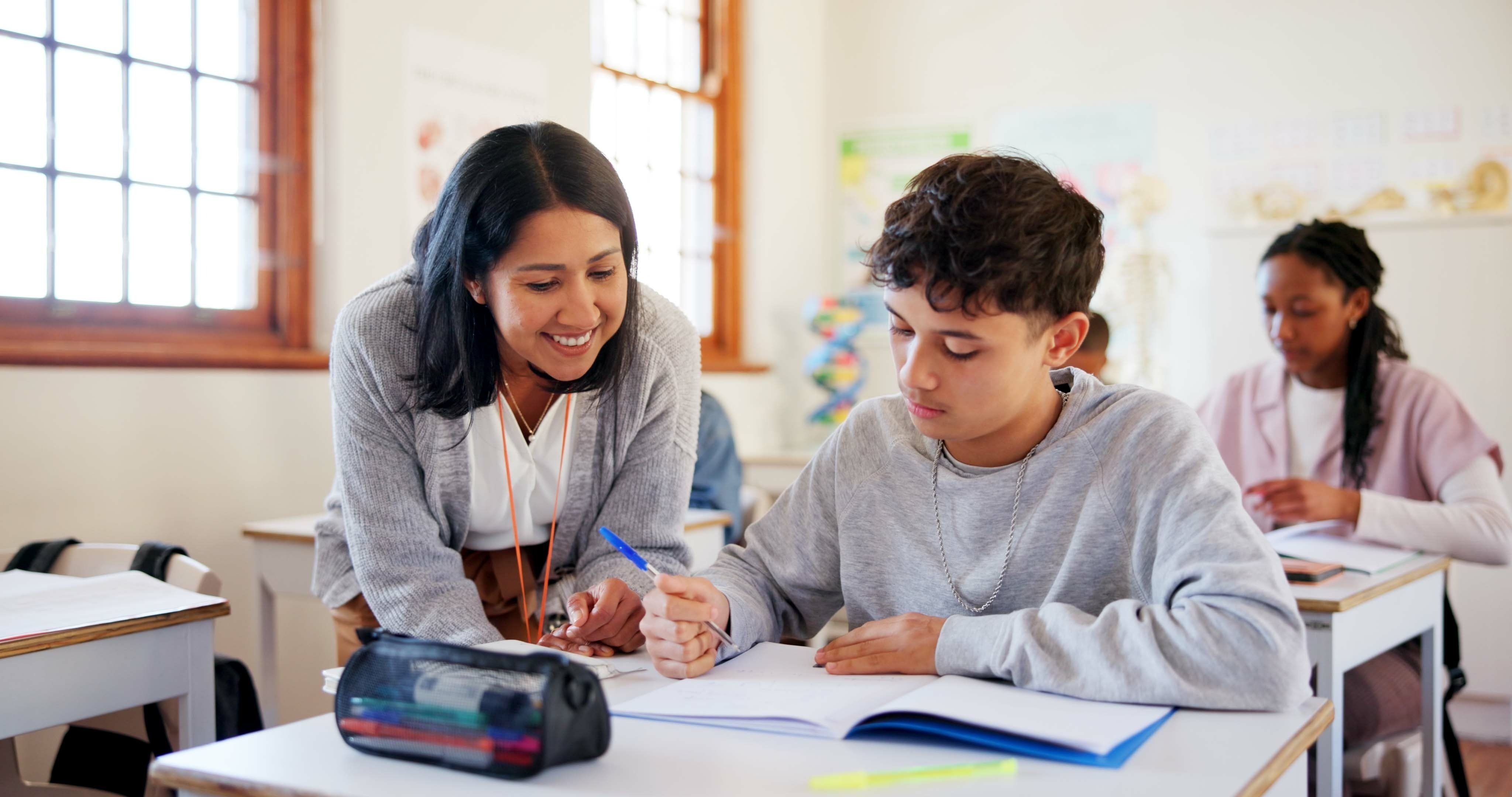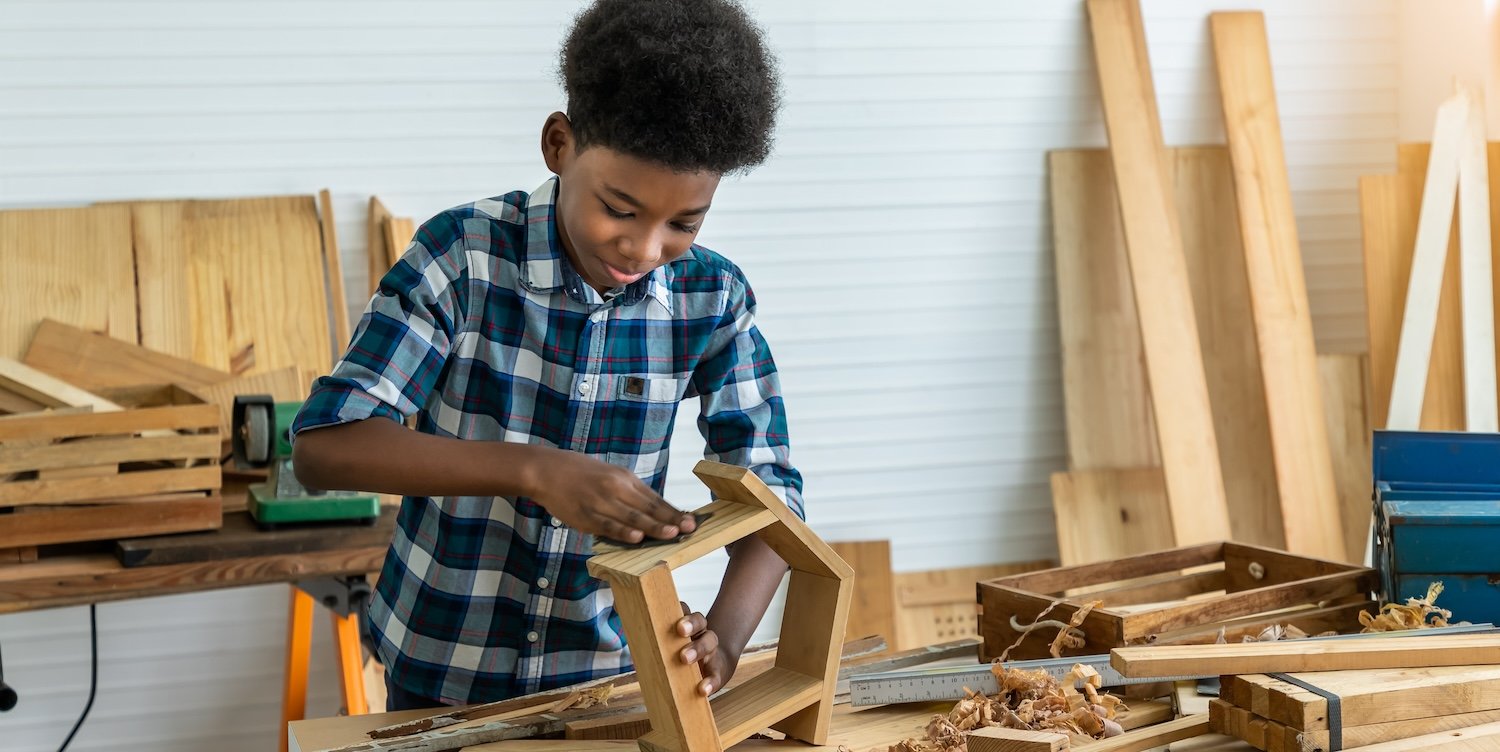Adapting to a New Normal
.png)
We can feel it around us. The days are a little shorter and our nights are a little cooler. It is time to return to school. Although we have lived through tens of falls ourselves and parented through many already, we can all agree that this is a fall like no other. In addition to the back-to-school excitement, we now have the anxieties about COVID-19 changes, new procedures, and work-life balance. Although there is no full-proof roadmap to follow in the next few months, there are certainly familiar strategies that parents can use. The difference is now is the time to be deliberate and intentional with them
Focus on structure and routine.
If your son is attending school on campus, he will be on a regular schedule for his day. If your son is quarantining or distance learning, you will want to mirror the school day’s schedule as closely as possible. This will help to normalize the day and create the school-home boundary that can sometimes be blurred during remote learning. Try to really define your role during school hours; you are not the educator! Routines are also important for sleep, bath time, story time, sports, etc. and it also helps to avoid over scheduling. Provide fun, active indoor and outdoor activities that will keep your son moving and having fun. Remember, everyone does better with downtime, playtime, and fun.
Trust the school and all of the school personnel who are caring for your son.
Certainly, much has changed about our school in the last six months, but thank goodness much has remained the same. The teachers, coaches, staff, administrators, and so many others have worked tirelessly throughout the summer to prepare schools to be as safe as possible. They are also working hard to ensure that students who will be distance learning will have quality programming while also feeling a sense of genuine community. Trust that your son’s educational, emotional, and social well-being is the top priority for your school. When your son comes home from school, ask him questions that stimulate positive conversations, and offer a sense of resilience and celebration. “What was the best part of your day?” “What was the funniest thing that happened in school today?” “Did your teacher or you read a new book?” Tell me more about it.” “Who did you play with at recess?” “If you got to be the teacher tomorrow, what would you do?” “Tell me when you felt joy today?” “How did you show kindness to another today? Tell me more about that.” Remember to share your thoughts too!
Answer questions calmly and with facts when possible.
Your son will have many questions surrounding the return to school, and he may be worried and stressed. Answer his questions when you can and walk him through procedures to help him prepare. Dr. Harold Koplewicz, the president of the Child Mind Institute, recommends setting an intention of social responsibility and compassion for others to help with the wearing of masks. Grace for all is a prerequisite for our return. No one has done this before. No one has a plan for what lies ahead, and we will all make mistakes. It is ok to make mistakes. And re-dos will need to happen. Modeling patience and calm is important, but just as important is the modeling you do when you yourself have lost patience or weren’t your calmest, best self. Self-care is also a necessity for everyone. Self-care is not selfish or lazy. Mindfulness activities such as yoga and meditation can be enjoyed alone, but they can also be cultivated into quality family time – as is a family bike ride or a hike in the park. Try not to focus on the things we can’t control, but rather focus on the things we can. Please see the links below for parent resources we hope are helpful to you as you navigate these conversations with your son.
You know your son best.
You know your son’s routines, behaviors, and attitudes. Listen and watch for outlying changes. Talk with him about his day during dinner prep without probing conversations. Observe him in his natural settings with peers and while he’s home. If the changes become a pattern over time, know whom to contact at his school. If this pattern carries over to other environments, perhaps you can then follow up with the school counselor or psychologist. You also know your son as a learner. Know the point person/team at school to contact if you are concerned with his progress or make contact with them in advance of the situation worsening.
Offer support to others and practice gratitude.
Carve out time for community service, write a thank you to a frontline worker, help a neighbor or another family member, or begin a family gratitude journal where thoughts can be written down each night at dinner or as bedtime is approaching. Evidence of compassion, empathy, and kindness promotes a growth mindset (even baby steps of growth) and this can lead to empowerment for an anxious child or adolescent. If your son experiences worry, reassure him using calming techniques such as deep breathing, visualizations, and meditations. If stress becomes unhealthy or too “big” to manage, reach out to the school. They are there to help!
We may not be able to take away all of the uncertainty surrounding the return to school, but parents and teachers work together to support your sons to foster a sense of calm and resilience. By partnering with you on structure and routine, both at school and home, they will feel safer and more secure. By talking openly and honestly with kids, answering their questions thoughtfully, and helping model mindfulness and other coping skills, we show them that even adults sometimes feel uncertain, but the worry can be managed. Finally, grace, trust, and self-care are necessary. Every day will look and feel different – and we need to take things one day at a time. All we can do is our very best. On days when it’s challenging to find even the smallest of victories – let it go, try to reset, and begin again the next day. And on days when we have a victory – celebrate! Sooner or later, the small victories will add up too many.
Subscribe to the Boys Education Series on iTunes or Stitcher
Parent Resources:
● Decoding Boys: New Science Behind the Subtle Art of Raising Sons
● 15 books for kids with anxiety
● APA COVID-19 Information and Resources
● Back-to-School Tips
● Child Mind Institute | Transforming Children's Lives
● A Mindfulness Practice for Wearing a Mask
● How to help Students Get Used to Masks
● Cloth Face Coverings for Children During COVID-19
● https://www.drlisadamour.com/resources/
Mrs. Leslie A. Muha joined the faculty in 2008 and is the current Jr. K- Grade 8 Professional School Counselor. She received her B.S. degree in education from Kent State University, her M.A. degree in reading from Eastern Michigan University, and her M.Ed. degree in School Counseling from John Carroll University. She is the endowed F.J. O’Neill Chairholder in Guidance and Counseling, for her work in assuring that the quality of guidance is maintained at the highest level. Dr. Spannagel is a clinical Psychologist at University Hospitals and at University School. She specializes in working with children presenting Autism Spectrum Disorders and a variety of developmental, learning, social, and emotional problems.


%202.jpeg)
